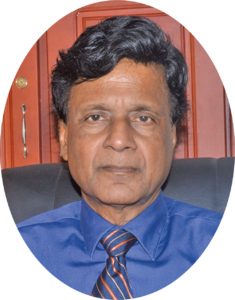 This was originally written in 2006. With the imminent absorption of the AFC and WPA into the PNC, it’s clear the more things change, the more they remain the same!
This was originally written in 2006. With the imminent absorption of the AFC and WPA into the PNC, it’s clear the more things change, the more they remain the same!
“There appears to be some ambiguity in the public sphere about the notion of a “Third Force” at the present conjuncture in Guyanese politics. We offer one perspective to stimulate discussion. Modern Guyanese politics is universally accepted to have begun with the launching of the PPP in 1950. There were, of course, several other parties that contested the 1953 elections, but with the overwhelming (and unexpected) victory of the PPP, those parties receded. The split in the PPP in 1955 eventually created the two major “forces” in our political landscape, which have persisted into the present – the PPP and the (rump) PNC – into which several of the older parties merged.
The first authentic “Third Force” emerged in 1960, with the formation of the United Force under Peter D’Aguiar, who attempted to offer an alternative to the two major forces by outlining a radically different vision for the country based on a free enterprise economy, in opposition to the socialist-based models of both the PPP and the PNC. The coalition between the PNC and the UF in 1964 effectively destroyed the Third Force, since in merging with the Second Force (PNC) the UF was peripheralised as the “disequilibrium of size” principle played itself out. Between 1968 and 1974 the PNC created a de facto one-party state since the PPP was effectively neutralised and manoeuvred into a supplicant role.
The emergence of the WPA in 1974 created the space for a new “Third Force” politics, since their radical political strategy offered a perceived viable alternative to the PNC in the minds of large sections of the populace. The assassination of Rodney in 1980 unfortunately destroyed that alternative, as the surviving leadership groped (unsuccessfully) to find a substitute for Rodney’s charisma, authenticity and depth.
Possible “Third Force” politics had to await the acceptance by President Hoyte of democratic politics in 1992, since this re-created the reality of the effective two entrenched forces that had been created in the 1950’s, along with a host of smaller parties. In my estimation, the inability of any of the then smaller parties to present a creditable alternative to the two major forces precluded emergence of a genuine “Third Force”.
In 2003, ROAR came up with the proposal of a “Centre Force” as a strategy for creating that credible alternative. Others also talked of a “Third Force”, but their premises differed on several crucial areas. Our premises were simple. First, while many of the smaller parties had credible individuals and programs, individually they were not perceived as capable of taking on the two behemoths, so a coalition of these parties was suggested to address that concern. Secondly, most Guyanese bemoaned the fractious nature of our politics and intuitively knew that if all the groups would come together, Guyana would make rapid progress. The answer we proposed, was to insist on a “Government of National Unity” after the elections that would include the PPP and PNC with the Coalition of the smaller parties that would form the “Centre Force” which would, at a minimum, hold the balance of power in Parliament.
What has prevented the Formation of a “real” Third Force has been two opposing conclusions by some of the smaller parties. There is one tendency that holds that even if a coalition of smaller parties deny the First and Second Forces a majority, at the next elections, the PPP would most likely capture the Presidency and then use its still considerable powers to govern in its exclusivist fashion. The answer, adherents of this position maintain, is to enter into a pre-election coalition with the PNC. We reject this approach because it not only ensures the maintenance of our debilitating divisions but actually exacerbates them, by joining “one side” to oppose the “other” side, a la the UF in 1964.
The other tendency, represented by the new AFC, has been to assert that one’s party is primus inter pares and that the other smaller parties should merge into it to become the “Third Force”. ROAR opposes this tendency, since it goes against the very foundation of Guyanese politics – its diversity of interests that cannot be wished away but must be given agency, respect and equality. Apart from arrogance, this tendency represents the very worst of our old politics, and we believe it must be resisted at all costs.”
What says the AFC now?
Related posts
-

Granger, the PNC and power
Over the last year and a half, and especially during the post-NCM manoeuvres and elections hijinks,... -
Rigged elections in Guyana
Most Guyanese refused to believe that David Granger and the PNC – camouflaged as APNU/AFC –... -
Power hungry
On March 2, Guyanese thought they drew a proverbial line in the sand on the creeping...
